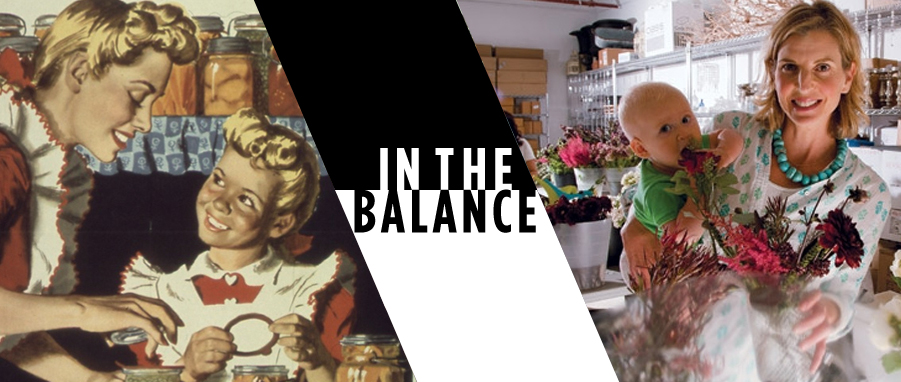Meet the Local is a series designed to uncover the differences (and similarities) in how we think and live in different parts of the world. Over the upcoming months, I’ll ask locals from places all over the world the same set of getting-to-know-you questions. This week, meet Neno, who was born in Sarajevo and has lived there ever since, including four years spent largely underground during the siege.

What do you like about the place you live?
I like, first of all, the people. The people and the size of the city. Sarajevo is a quite good city to live because it’s quite a small city---it’s only 400,000 people---so you know everyone. It’s like one big family. And also the history, the culture. But mainly the people. The people are very friendly in this city, so you can always count on someone helping you in the city. I like that feeling.
What don’t you like so much?
I don’t like politics in the city, and the politicians. It’s affecting the every day life---we could have better public transport, we could have more investments, we could improve many things in this city. But unfortunately we have a lot of bureaucracy. We have three governments, and three presidents. It’s a small country---only four million people---so to make one decision when you have three presidents. . . it’s quite impossible. Nothing gets done.
What do you normally eat for breakfast?
I drink tea, or sometimes coffee. Then scrambled eggs, with cheese. No pies! Because people think we are eating the pies for the breakfast. The pies are more for the lunch or for the dinner. People think we are eating pies every day, but it’s very, very heavy on your stomach. It’s more like a fast food things. I eat pies only maybe two times in a week.
What do you do for a living? How important is your job to your sense of self?
I’m a student of political sciences and diplomacy and international relations, getting my masters. I lead walking tours when I have free time from my studies. I think I will stay in tourism. I’m studying political sciences, so people always think I will be involved in political life but I think I like history, I like the political philosophy, but I don’t see myself in a political life. I want to send a message from this city, this country. I think we have more to offer than just the recent history. That’s the reason I started doing walking tours. Unfortunately, this country still has a reputation as a war torn country. When you say Bosnia, the first image people have is the war in Bosnia, Sarajevo under siege, but I truly believe this country is a country with a long and rich history, friendly people---I think we have a lot to offer.
My job is very important to my sense of self. It’s very difficult life in this country. You know, I’m 27 years old and I’m still living with my parents. But in some ways, I have freedom because I earn all of my money. So for my self-confidence, it’s very important that I also earn something. Most people live with their parents till they are married, because they are close with their family, but also because of the economy. It’s a very high unemployment rate---43% at the moment. So unfortunately people can’t afford to have their own flat. And also Sarajevo is a very small city, so even if I rented a flat, I would go every day to my mother’s to eat something. So at the moment, I think it’s better to stay with my family.
What do you do for fun?
I like to hike, when it’s sunny weather, in the [1984 Sarajevo Winter] Olympic mountains. I also like photography---I like to walk around and take photos. I like to bicycle---there’s one part of the city that has bicycle infrastructure, so I go there and I bicycle. I also like bowling, so I go there with my friends for bowling very often. I also like to read, and to travel.
How often do you see your family? Tell me what you did the last time you saw them.
I live with my family. We are very close, because I was here during the siege so we were always together then. The sense of community in this country is very strong. The people are close to each other; the neighbors are close to each other. The siege made us closer, because we survived together the most horrible moments. I think the siege of the city affected people in a positive but also negative way. I think that people in this country appreciate small things more. Maybe like some other countries or the younger generations in this country, one small thing is nothing. For example, I like to eat everything. I’m not choosy, but I have a niece, and she was born after the war. And we all have a Sunday lunch together and she is so picky---I don’t like that, I don’t like that---and I get so frustrated, like, you need to eat everything, because you don’t know the feeling of when you have nothing to eat at all. I appreciate the food. I try to enjoy small things. But also the war had negative effects---like, I never celebrate New Year’s Eve on open squares. I don’t like fireworks. Whenever I hear fireworks, I get flashbacks, because it’s the same sound as the shells exploding.
What’s your biggest dream for your life?
To travel around the world. Now, I’ve traveled almost all of Europe, except the UK and Ireland. Personally, I think that’s the best spent money. When you learn about other cultures, you start to appreciate more about your own culture, and your own life. But after traveling, to again always return to this country. No place like home, no place like home. I experienced the worst things in this country, so why not stay? I think this country deserves a better future with smart and educated people. We will not have a bright future if all the smart and educated people leave the country. So we need to stay, and we need to fight for the changes.
If you could live anywhere in the world, where would it be? Why?
I like Spain and Portugal. The people are very similar to us here---they’re also very friendly, very open. They also have not very good economy, like this country, but they’re like, let’s enjoy life! Things will improve! I can imagine myself living in Lisbon for one or two years, but like I told you, I then want to come back to Sarajevo.
What are you most proud of?
I’m proud of my family. I’m proud of my mother, my father. Because I think they directed me in a good way, they raised me to be a good guy. My mother for me is like a big hero because I was with her during all of the wartime. She was also working every single day, walking back and forth through the snipers, because she needed to do something, to occupy her mind, to not be in a basement all the time. She was working not to lose her mind, and a little bit to keep her job position. She was working for free. Sometimes she got paid in cigarettes.
How happy would you say you are? Why?
I am very happy because I have a good family. I have my mother, my father, my sister, my niece. It’s a very small family, but we are very close to each other. That’s my biggest happiness. Also, I’m happy because I live in Sarajevo.
To read the answers of a local Londoner, click here to meet Carleen.





 Dearest Clara,
Dearest Clara,



















 I wish for you best friends. I
I wish for you best friends. I 
